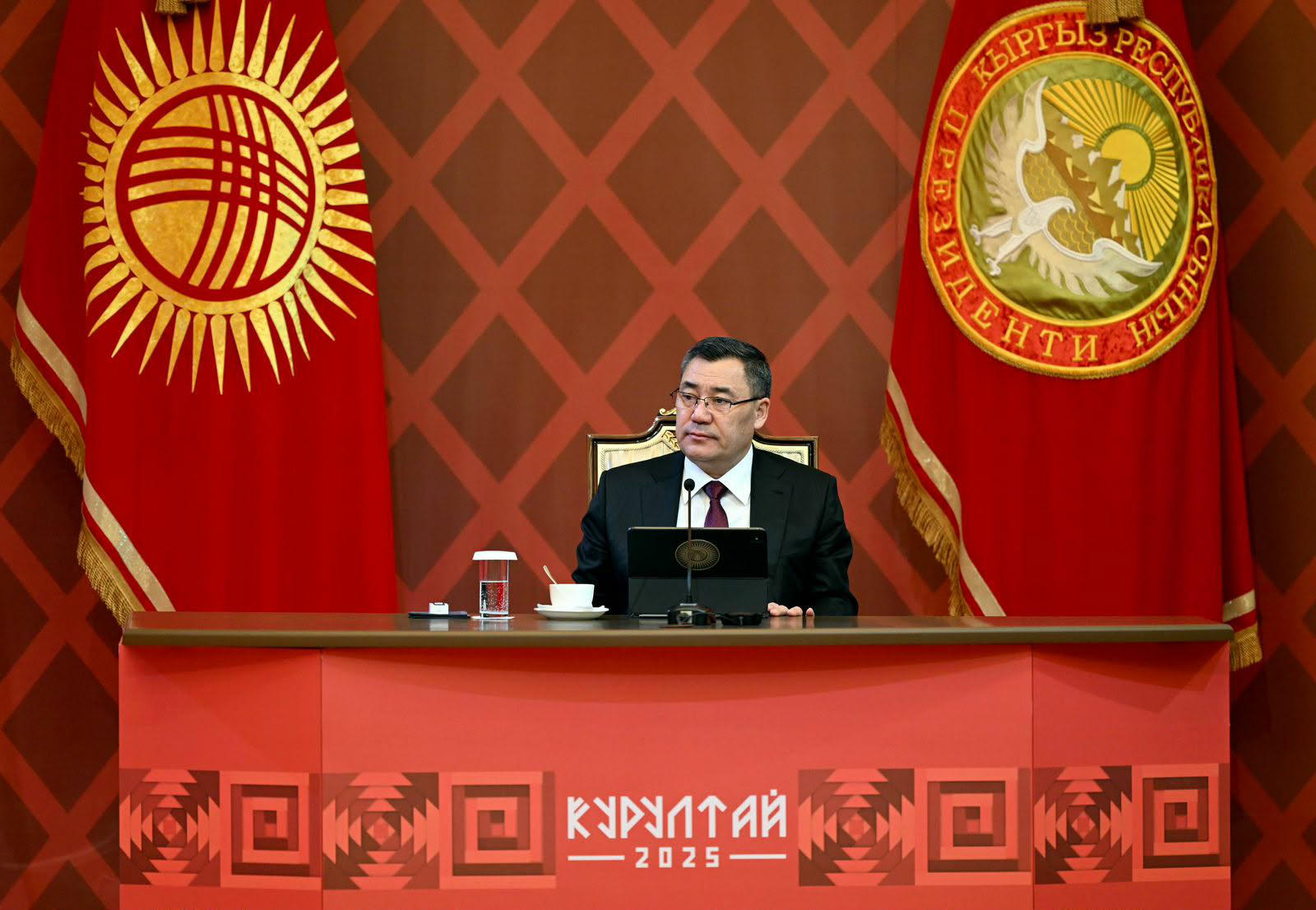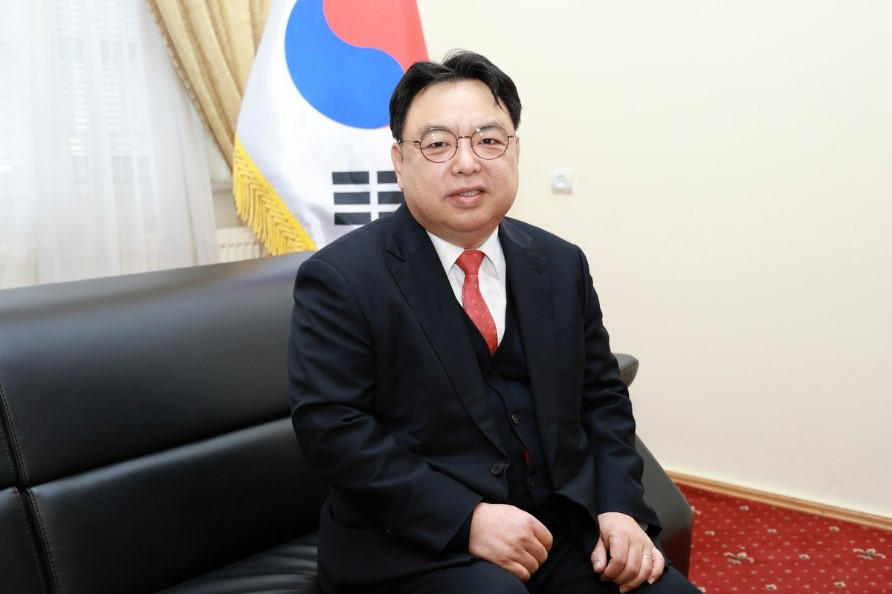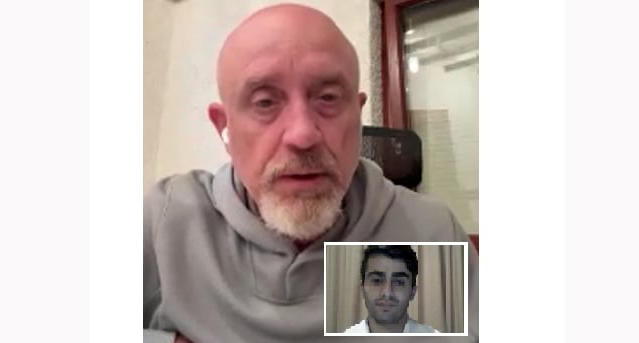Steven Blockmans: If Georgia misses the opportunity to get closer to the EU, it will take a long time to repair the damage caused by the autocratic regime

Why might the government of "Georgian Dream" want to extend the law to funding that comes from the European Union, which it says it wants to join, was one of the first questions that "InterpressNews" respondent and senior researcher of the European Policy Research Center Steven Blockmans asked about the bill on transparency of foreign influence.
In an interview given to InterpressNews, Blockmans clearly defined several reasons why, in his opinion, the said law cannot be adopted. He also named the differences that fundamentally differentiate the draft law registered in Georgia from the draft law under consideration in the European Union.
- First of all, I would like to thank you for the opportunity to speak with you at such an important time for Georgia. Also, I would like to emphasize once again that you have come to our country at a very crucial time. I would like to ask you to share with us the main messages you conveyed during your visit. I know you have attended several panel meetings.
- Returning to Georgia is really fantastic, I have been here many times, but never at such a key moment as it is today and in general, these days. Of course, we are watching the development of the situation surrounding the initiation of the legislative proposal from a distance. I thought that now it was especially important to spend Europe Days in Tbilisi - the capital of Europe, where European values are most loudly defended by mass civic involvement. The feedback on the messages that I gave was nice and to be honest, it gave me hope that there is a brighter future for Georgia than the ruling party is painting at the moment.
My message was that the ruling party is following an anti-EU path, which it proves through its own activities. In order to return to the path of progress and to focus on reforms that are in line with transparency, human rights, fundamental freedoms and European values, it is necessary that people who support EU membership, even in the largest percentage, keep the pressure on the authorities.
- Before we talk more specifically about what worries Georgia and Georgians at the moment, I would like to ask you to generally assess Georgia's compliance with European values...
- In the general context, of course, we share European values, which are enshrined in several human rights conventions. However, in the recent period with the accession process, which Georgia started by applying for EU membership, the European Commission and the member states have defined 9 steps, priority issues that must be fulfilled, however, if we take into account the legislative proposals presented by the ruling party, be it the abolition of gender quotas for political parties, a bill related to the rights of LGBT people, as well as the amendment that entered the tax code and with it the re-introduction of the law on transparency/agents, one cannot avoid the conclusion that in all directions Georgia has retreated in relation to what the EU expects from a candidate country. .
- Do you think this is Georgia's retreat only from the 9 points defined by the European Union, or Georgia's retreat in terms of democracy in general?
- I think that you are pointing to the right issue, because it is not easy, just checking compliance with the 9 steps from the European Commission. The real concern, of course, is where the ruling party is taking the country as a whole, away from democracy and the rule of law and in a more autocratic direction.
The re-introduction of the "foreign agents" bill is directly inspired by Russia, as in Belarus, where civil society organizations have been systematically uprooted since 2012, and this is, of course, the exact opposite of what an EU candidate country would be expected to do. But it is very important that this fundamentally contradicts where the people of the country want to see Georgia in the future.
- Our government is quite bold in its statements that they will still be able to pass this draft law, despite the statements made by Georgia's western partners. Accordingly, I would like to ask you, in your opinion, what negative consequences can arise if it is accepted?
- It is obvious that the government presents itself as an opponent of its Western appeal and strategic partners in the European Union and the United States of America. This is a geopolitical reorientation on the part of the "Georgian Dream" government, which is fundamentally against the European integration process.
As for the results, various opportunity packages are discussed in the capitals of the member states and in the European institutions. The European Parliament adopted a resolution demanding the suspension of the candidate country's status and pre-accession process, which is quite radical from a political and diplomatic point of view. This is what happened in the case of Turkey, because in the end, Turkey developed a multi-vector foreign policy, as the "Georgian Dream" government does, which is not in line with the EU's foreign and security policy, and which ultimately allowed the EU to abandon the pre-accession process and negotiate individual issues. Membership is now frozen. So, the same thing can happen with Georgia.
Of course, there are other ways to put pressure on various individuals within the ruling elite, in the form of targeted sanctions, if, of course, there are legal grounds for this in the context of corruption or circumvention of European sanctions. Imposing sanctions on the oligarch and his entourage. Of course, there is also a discussion with the EU regarding the temporary suspension of the visa-free regime, which, on the one hand, will have a negative impact on the Georgian people, who will have to go through more administrative procedures in order to be able to travel to EU member states. This creates more pressure on the people, who in turn are more likely to pressure the government to change its position. Moreover, it will not restrict flights to the EU, it will just make the process more difficult. Therefore, it is a decision that can also be expected and at a lower level considered to delay new funding and financial assistance flowing to the state.
- Representatives of our government always emphasize that the draft law serves only transparency. Do you see any dangers?
- I think we don't even need to speculate on this issue, because it was enacted even before this law was approved - you can see the poster campaign, which includes almost fascist methods and is placed near the workplaces of civil society organizations, or on the walls of their homes and residences of family members. You see, a campaign of intimidation that is clearly orchestrated massively from call centers that requires funding and the involvement of the state apparatus, at least to get these people's phone numbers. These are the types of repressive mechanisms we saw used in Russia, Belarus, Nazi Germany and other places, and I don't want Georgia to go in the same direction.
It is absolutely crucial that the pressure comes from within and civil society is playing its part in this direction with mass protests and this must continue, and pressure from the outside is also important, including the continuation of high-level visits from EU leaders and other political leaders. If the speaker of the Parliament of Georgia does not want to meet with his colleagues, the chairmen of the foreign affairs committees of the various European Parliaments, nothing can be done in this direction, but it speaks quite loudly about the involvement of the ruling party with the European Union, which he says he wants to join, but how to combine these two things ? - it is impossible.
- I would like to make our dialogue more focused on Georgia's aspiration to become a member of the European Union, at least the Georgian people still want to become a member of the European Union and I am sure it will always be so. Therefore, please explain to us how unique is the situation in which Georgia found itself after the illegal and unjustified invasion of Ukraine by Russia, which opened a window of opportunity for Georgia along with Ukraine and Moldova on the road to the EU. How would you rate this opportunity?
- 3 years ago, no one would have thought that Georgia would be in the state it is in now, this is the result of the unity of international and domestic political factors, both in the European Union and in Georgia, which turned out to be the facilitator of this decision. But this may change due to the situation inside Georgia and it may change depending on the international context. Therefore, I believe that this is a truly unique opportunity.
- I will ask you here, what is your prediction if Georgia misses this opportunity and cannot pass through this narrow window of opportunities?
- I can only say that it will take a lot of time to repair the damage caused by the autocratic regime that has been in place since 2012, which created a patronage system in economic and financial terms, joining the state apparatus to control it... All this will need to be completely reconfigured, which will take years. If we take the example of Poland, within the EU, which went in the opposite direction under Kaczynski, the new government needs to make a painstaking effort to renew the rule of law, bringing it into line with EU law. Georgia is still outside the EU, it will benefit from the EU's help to get there, but it will also be very vulnerable to hostile foreign influences, such as those coming from Russia.
- My last question will be this. What is your recommendation to the government on the one hand and on the other to the people who are against what is happening in the country now. What steps should you take to find common ground?
- It is quite easy for the government to withdraw the draft law on "foreign agents". Listen to the people, understand the direction they want to take towards the EU and begin to align with the priority steps that have been identified for the country's progress towards EU membership.
I would say to people that it is absolutely key to keep up the pressure. It is unfair that they were exposed in this responsible position, but unfortunately this is the situation society is in now and in order to bring about change, it is absolutely key to keep up the pressure, including to ensure free and fair elections.
I would also argue that the entire opposition needs to unite around an agenda inspired by moving towards the EU and away from Russia.
Salome Abulashvili
"InterpressNews"


